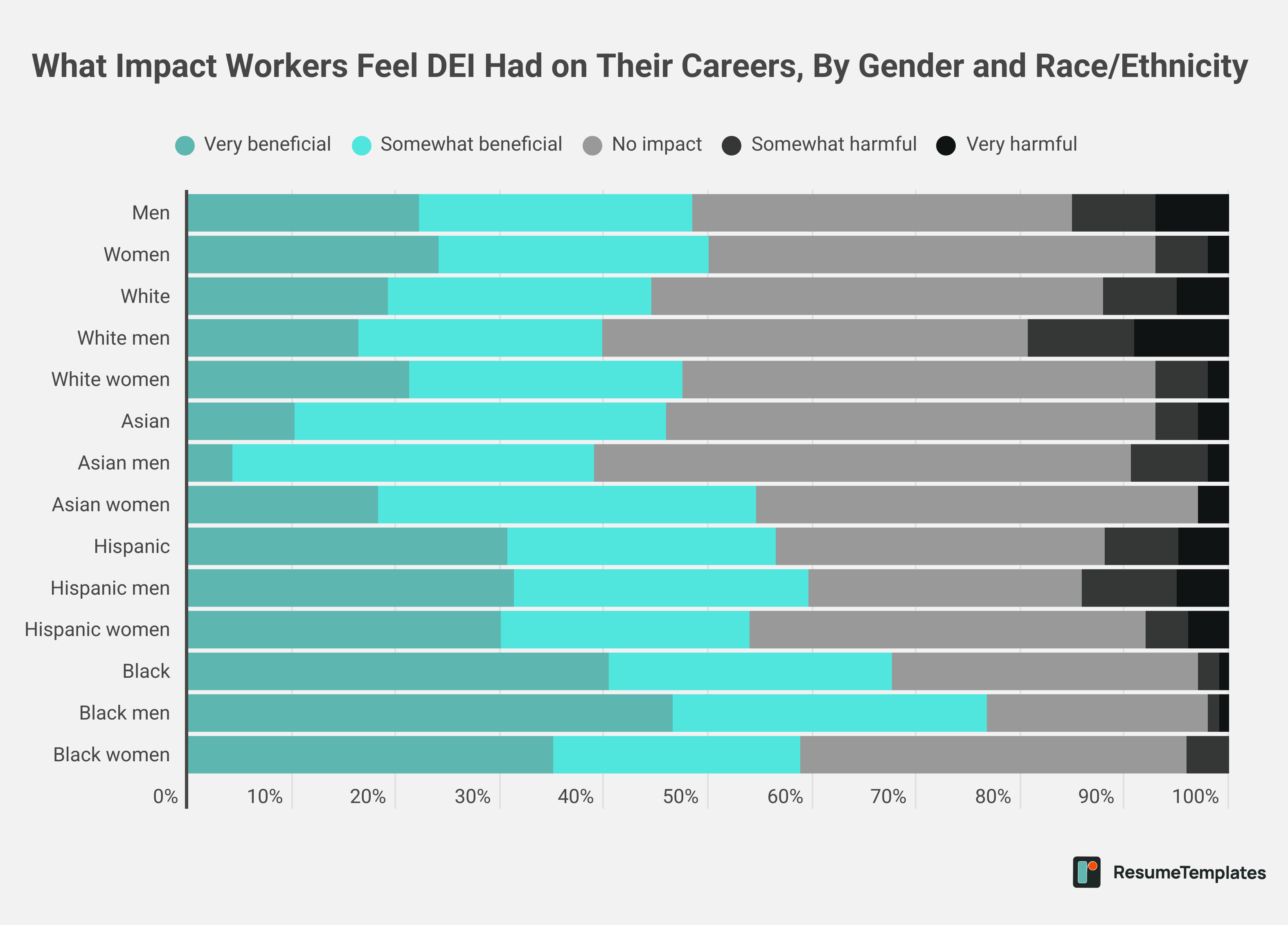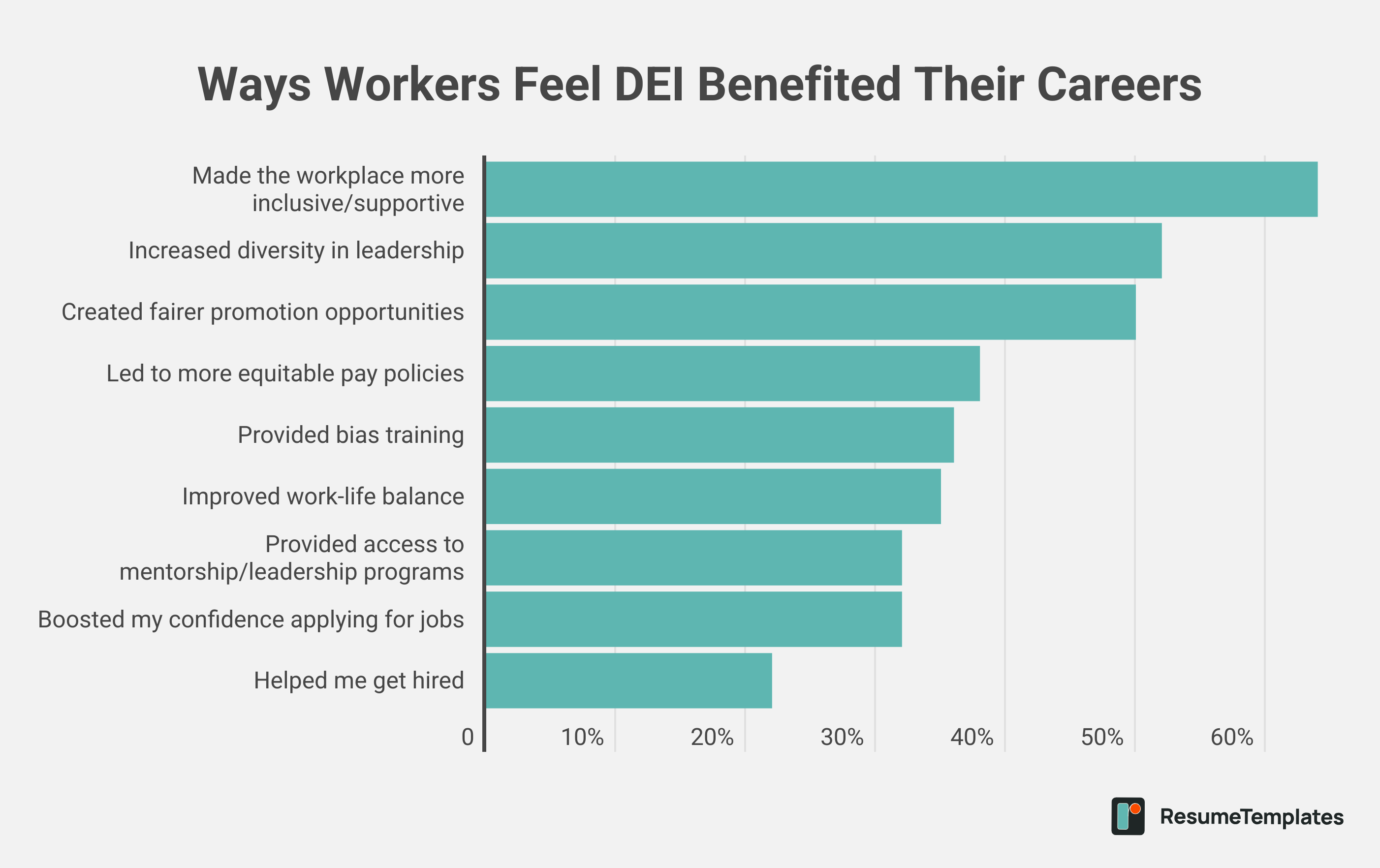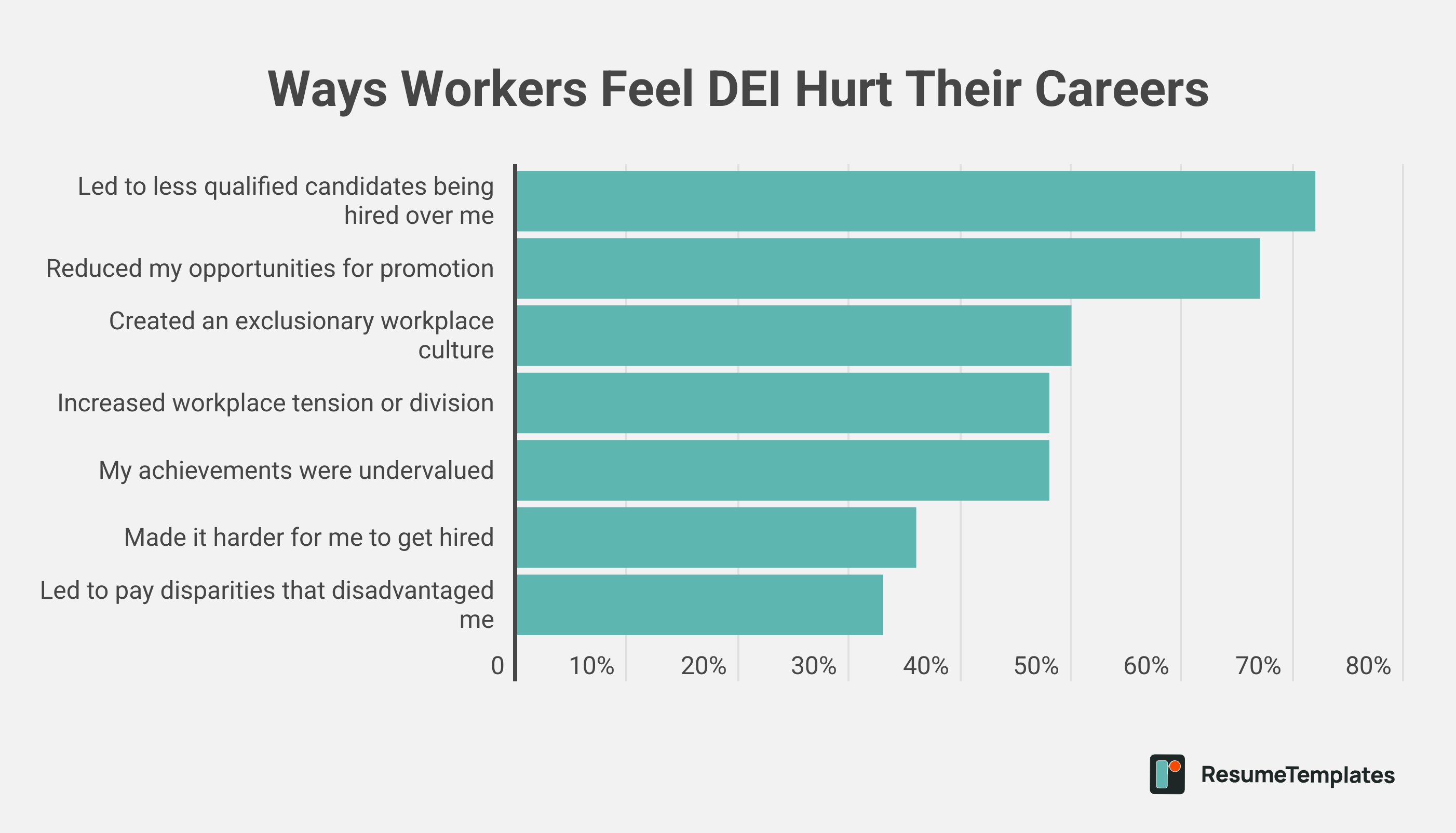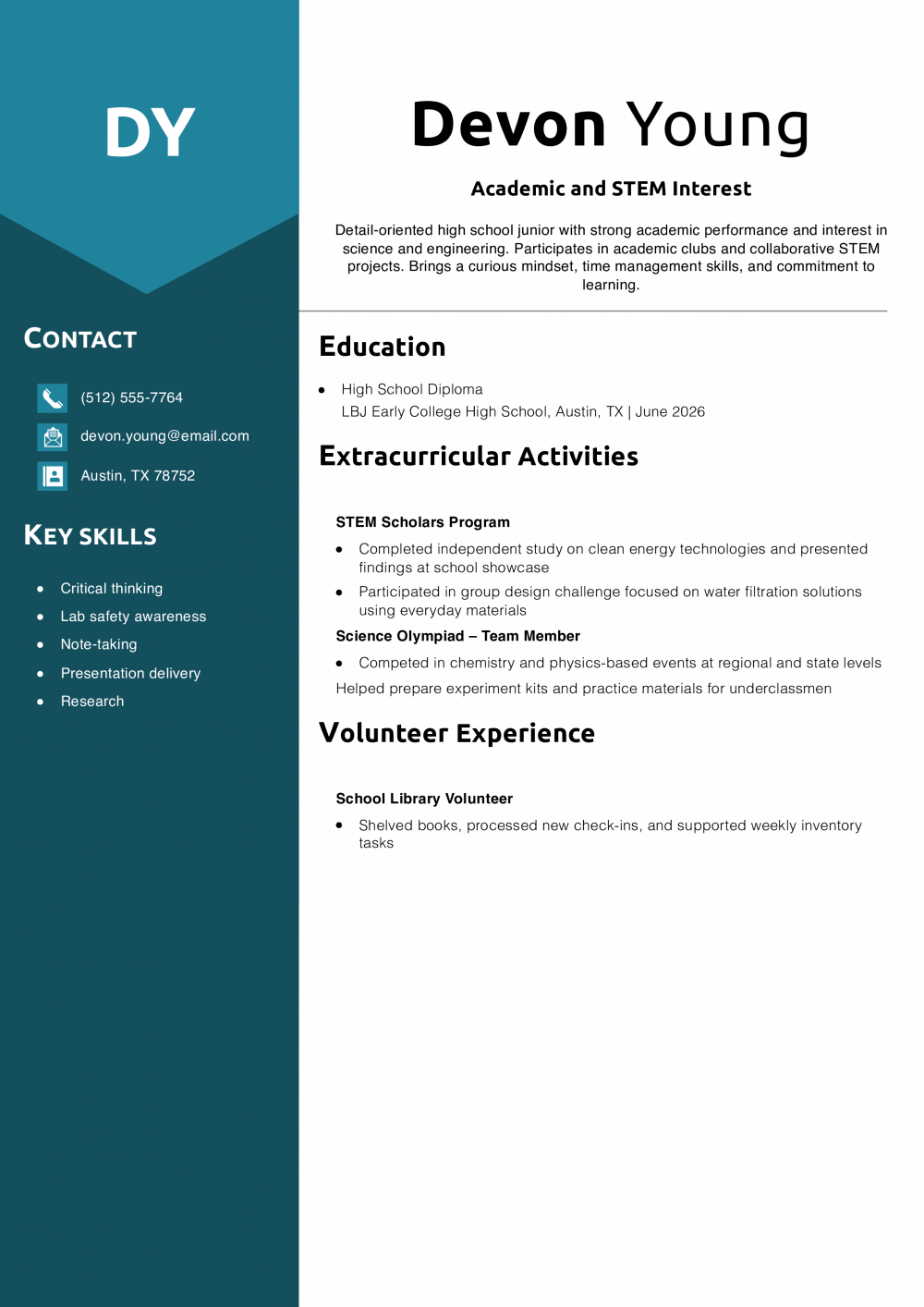In January 2025, President Trump signed an executive order instructing federal contractors not to engage in diversity, equity, and inclusion (DEI).
To gain insight into how DEI programs have impacted U.S. workers, in February 2025, ResumeTemplates surveyed 1,239 employees working for companies with a DEI program within the past year.
Study highlights:
- Half of Americans believe DEI helped their careers, while 11% say it hurt. White men were far more likely to report negative impacts.
- Most workers feel DEI bolsters inclusivity, while critics argue it leads to hiring less qualified workers.
- Only 1 in 3 Americans support Trump’s executive order banning federal DEI programs.
Half of Americans Say DEI Initiatives Benefited Their Careers
Nearly half (49%) of Americans say DEI initiatives have had a positive impact on their careers, while 39% report no impact, and 11% feel they have been harmed. Women (50%) and minorities (58%) were more likely to say DEI has benefited them, while white men were the least likely to say it improved their careers (39%) and the most likely to report harm (19%).
Younger workers across all racial and ethnic groups were more likely than older workers to say DEI initiatives have helped their careers.

Bolstering inclusivity was the most cited benefit
Among those who said DEI initiatives benefited their careers, the most common advantages cited were a more inclusive and supportive workplace (64%), increased leadership diversity (52%), and fairer promotion opportunities (50%).

Losing opportunities to unqualified candidates was the top reported hindrance
Among those who felt DEI hurt their careers, the top concerns were less qualified candidates being hired over them (72%), reduced promotion opportunities (67%), and feeling excluded in the workplace culture (50%).
“DEI conversations are sensitive in today’s political climate. We all have biases — while some people recognize theirs, others don’t. DEI programs, particularly in employee training, help uncover these biases, making people better coworkers, hiring managers, and leaders,” says ResumeTemplates’ Chief Career Strategist Julia Toothacre.
“One key benefit of DEI hiring initiatives is expanding candidate pools to include qualified individuals who might otherwise be overlooked due to lack of connections. It doesn’t guarantee a job but helps level the playing field. Critics have argued that DEI leads to hiring unqualified candidates to meet quotas, but that’s a misinterpretation. Its purpose is to ensure fair consideration for a diverse range of candidates, not forced selection. Another criticism, such as in President Trump’s Executive Order, is the cost and ROI of DEI programs, which can vary due to inconsistent context, messaging, and implementation. However, cutting these programs so soon stifles their growth before they can be standardized. Many leaders dismiss DEI initiatives simply because they don’t see the need for it, but often because they haven’t been directly affected by its absence.”

1 in 4 Feel DEI Resulted in Hiring of Less Qualified Candidates, But Most Say It Created More Inclusive Hiring Practices
Overall, regardless of how the program impacted them personally, more than half (51%) of respondents believe DEI initiatives have led to fairer hiring practices at their company, while 24% say they have resulted in hiring less qualified candidates. The remaining 18% felt it made no difference.
Beyond hiring, 62% of respondents report that DEI has made their workplace feel more inclusive, compared to 18% who feel it has divided their workplace. Women, Black, Hispanic, and younger workers were more likely to say DEI improved hiring fairness and workplace inclusivity than their counterparts.
Only 1 in 3 Workers Support Trump’s Executive Order Banning Federal DEI Programs
Regarding President Trump’s executive order banning DEI programs in the federal government, 38% strongly disagree with the decision, and 15% somewhat disagree. On the other hand, 20% strongly agree, 14% somewhat agree, and 13% have no opinion.
Overall, 68% of respondents support continuing DEI policies in hiring and workplace practices, while 20% oppose them, and the remaining are unsure.
“Some believe Trump’s executive order will lead to more discriminatory hiring and promotion practices, though the Equal Employment Opportunity Commission (EEOC) still exists to address workplace discrimination. Others argue DEI itself is discriminatory, but many people remain unaware of their own biases that make these programs necessary. A key drawback of this order is job losses for those working to improve DEI programs and create inclusive workplaces. Another concern is that hiring managers may lean into their biases rather than objectively evaluating candidates. It’s important to remember that DEI covers gender, ability, identity, and more to promote inclusivity in the workplace. This goes beyond race, which DEI is most commonly associated with, and will impact populations such as new mothers and those with physical disabilities. While ADA laws mandate certain protections and accommodations, DEI programs foster awareness and understanding among employees,” says Toothacre.
Methodology: ResumeTemplates.com commissioned and launched this survey via Pollfish in February 2025. In total, 1,239 U.S. full-time workers were surveyed. The survey was census balanced by gender, race and ethnicity, and age to reflect the U.S. population.
Media inquiries can be directed to [email protected].
Resume Templates offers HR approved resume templates to help you create a professional resume in minutes. Choose from several template options and even pre-populate a resume from your profile.
